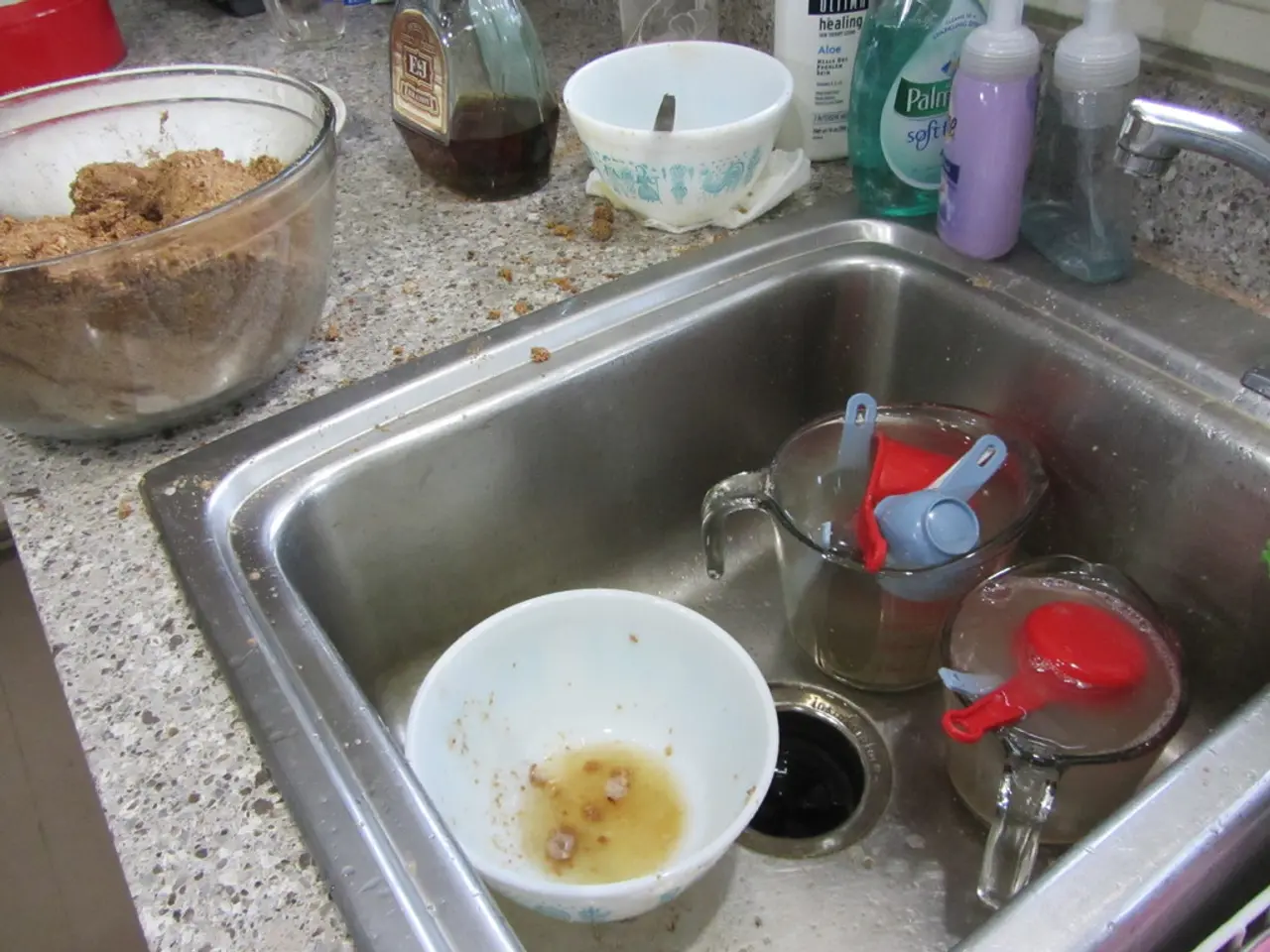Overzealous Cleaning Possibly Harmful for Family's Health, Particularly Children?
In a world where cleanliness is often prioritised, a growing body of research suggests that finding a balance between cleanliness and microbial diversity is key to maintaining a healthy immune system. By adopting evidence-based strategies, families can foster a richer microbial environment indoors, supporting their overall health and immunity.
One such strategy is to bring in indoor plants and increase airflow. Indoor plants nurture diverse microbial communities, enhancing your home's microbiome. Regularly opening windows, if air quality permits, can bring in microorganisms from outside, especially if you live near diverse plants and soil, which release immune-boosting microbes.
Having pets, particularly dogs, can also contribute to a diverse indoor microbiome. Dogs that go outdoors bring in a variety of microbes from outside, which can help promote health.
Using natural building materials, such as wood, can also support a healthy indoor microbiome. Designing spaces with natural materials or ventilation systems that promote microbial diversity is beneficial.
Consuming and preparing fermented foods at home is another way to introduce diverse beneficial microbes into your gut. Eating fermented products like kefir, yogurt, kimchi, and kombucha can help maintain microbial balance. Home fermentation allows exposure to varied microbes that may support immune function.
A plant-rich diet is strongly associated with a more diverse and healthy gut microbiome, which supports overall immune health. Consuming more fruits, vegetables, legumes, and whole grains provides prebiotics—food for beneficial microbes in the gut.
While it's important to maintain hygiene, excessive use of antimicrobials can reduce beneficial microbes. Use them judiciously to strike a balance.
Composting and gardening with microbial inoculants can indirectly enrich the home environment by increasing outdoor microbial diversity that can enter your home. Although more relevant for soil health, these practices can contribute to a healthier indoor ecosystem.
Research published on The Conversation by scholars Samuel White and Philip Wilson emphasises the importance of considering building materials and design for a healthy indoor microbiome. Allowing for some exposure to natural elements that carry beneficial microbes is important for maintaining a healthy immune system.
Over-sanitizing environments, particularly for children, may weaken their long-term immune defenses. A little dust in the home, when combined with thoughtful home design and natural exposure, might be good for your family's immunity.
Research suggests that the materials and design of buildings can influence indoor microbiomes. Incorporating "living walls" with plants and microbes can contribute to a healthy indoor ecosystem.
While it's crucial not to completely abandon cleaning routines, skipping an occasional deep clean may not be harmful. A balance between cleanliness and microbial diversity is important for maintaining a strong immune system.
Regular, safe exposure to a variety of microbes may help reduce the risk of common respiratory illnesses and autoimmune conditions like asthma, hay fever, eczema, and multiple sclerosis. Embracing these strategies can help families create a healthier home environment, supporting their immune system and overall health.
- Embracing the strategies of bringing in indoor plants, opening windows, having pets, using natural building materials, consuming fermented foods, a plant-rich diet, and composting can help families create a richer and more diverse microbial environment at home, supporting their overall health, family health, and mental health.
- When air quality permits, regularly opening windows can bring in microorganisms from outside, particularly if you live near diverse plants and soil, which release immune-boosting microbes, thereby contributing to better mental health and family health.
- By adopting evidence-based strategies such as consuming fermented foods and a plant-rich diet, families can foster a healthy gut microbiome, which is associated with maintaining microbial balance, supporting overall immune health, and reducing the risk of common respiratory illnesses and autoimmune conditions.







